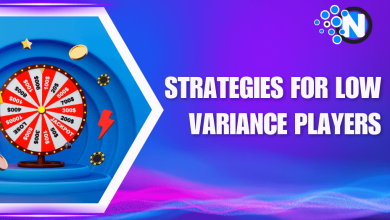The Impact of AI on eSports: Insights for Tech Marketers

The esports world is developing rapidly, and artificial intelligence can become a centerpiece of how teams train, strategize, and interact with fans. From performance analysis to ethical algorithm development, AI is revolutionizing the industry. New opportunities exist to help tech marketers become aware of trends, improve operations, and provide customers with an engaging experience across the global spectrum.
In this blog post, I will shed light on the impact of AI on eSports and how tech marketers can benefit from it.
AI in eSports
Artificial intelligence has become a driving force in the technology and esports industries over the last 12 months. By being used appropriately, AI can revolutionize the operations of operators, suppliers, and data analysts in esports. PandaScore uses AI to generate its accurate predictions because AI can process complex, uneven, and large-scale data.
The key to AI is its flexibility with new data, a capability that older models lack. This technology, when clubbed with the experience of human traders, guarantees the best result in the determination of eSports betting odds. Whilst AI can replicate the intricacy of esports events, human experts add a level of expertise and depth of knowledge about each sport to supply odds based on real probabilities. This is the combination of artificial and human intelligence that will be most accurate and efficient.

The Campaigns of AI in eSports: Advantages
It is reshaping the industry of how professionals and organizations approach coaching, training and protect fair play. The daily routine of a professional is practice, training, scrims (practice matches), and analysis of the game performed by coaches and analysts. The AI Analytics tools simplify this process by providing deeper insights into the performance of players and teams in specific games, such as VALORANT or League of Legends.
Important competitive strengths of AI in esports are:
- Performance Analysis: Performance analysis uses video replays of matches to measure reaction time, positioning, and shooting precision. It is displayed in graphical form to give gamers a more intuitive measure of performance in-game.
- Strategic Insights: Chris DeAppolonio, Chief Innovation Officer and interim CEO of Evil Geniuses, sees AI as both a third eye to coaches and analysts. It provides patterns and trends that drive performance, strategy, and discovery of global talent.
- Cheat Detection: AI games are increasingly being utilised to crack down on undesirable behaviour like botting in FPS games. Artificial intelligence systems developed by University of Texas researchers can identify cheaters with the same level of accuracy as reported in the Journal of IEEE Transactions on Dependable and Secure Computing.
These apps demonstrate that AI has the potential to enhance training and strategy. It also highlights the areas where you can apply it to increase integrity in competitive esports.
AI has improved esports. It makes games more efficient, fun, and fair. But its growing use brings serious ethical concerns. Teams must set clear rules and follow AI ethics. This helps keep esports fair and safe.
AI Can Help to Scale and Monetize
According to Forbes, AI has rapidly emerged as a potent means of scaling software and content creation. It presents new avenues of engagement to esports marketers. Teams can start by reviewing their current workflows. They should look for tasks that are slow or repetitive. Then, they can spot where AI might help. AI can speed things up and handle routine actions. This makes the whole process smoother and more efficient.
Clean, structured data can be significant as it improves content tagging and metadata handling, content organization, and social output pipelines. Marketers should focus on transparent options when selecting their AI tool to assist the esports community.
Setting up Ethical Principles Towards AI
As AI keeps developing, following the ethical principles is essential to ensurethis development is harmless. Particularly within academic circles, the Belmont Report is frequently used as the guiding tool as far as ethics is concerned in experimental research and algorithm development. The report contains three central principles that teams can use to design experiments and AI systems:
- Respect for persons: This principle relates to the individual rights and the safeguards of persons with poor autonomy, e.g., children, the elderly, or individuals with mental or physical disabilities. In practice, it emphasizes the role of informed consent. The participants must be aware of the possible risks and benefits of any experiment. They must also have the right to withdraw at any time.
- Beneficence: This is adapted to healthcare ethics and suggests the concept of not harming. In AI this implies being very explicit in the design of the algorithms preventing the potential reinforcement of biases based on race, gender, or political orientation despite the fact algorithms are meant to enhance a process, or a system.
- Justice: This principle revolves around fairness and equalizes the benefits and the brunt. The Belmont Report lists five methods of allocating benefits and burdens: equal share, individual need, individual effort, societal contribution, and merit.
These principles help researchers and developers. They guide the creation of AI systems that should respect human dignity. They must avoid causing serious harm and also deliver fair results.
Fascinating Insights on AI’s Impact on eSports
- The worldwide esports industry brought in revenue of 2.03 billion USD and a CAGR rate of 14.3 percent between 2019 and 2024.
- Sponsorship was the most dominant accounting to 61 percent of the total market amounting to $1.24 billion.
- In 2024, the market will be worth 17.8 percent more, as a booming gaming industry, new technological advances like streaming services and virtual reality and the availability of high-speed internet that stimulated accessibility and involvement among a global audience continue to drive up the market.
- The Statista report shows that the global sales of video games are expected to rise by 136.8 billion in a row every year between 2023 and 2027.
Final Thoughts
AI is more than just tech. It’s a smart tool for esports. It boosts performance. It helps ensure fairness and gives clear, useful insights.
When paired with human skills, AI becomes even stronger. Following ethical rules is key. This mix helps teams work better. It builds deeper fan connections and supports steady growth in a fast-moving space.
The future of esports depends on this teamwork, AI, and humans, side by side.




